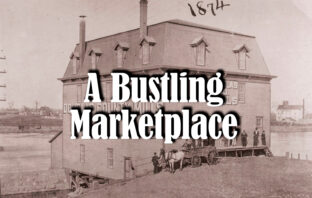
Many of the elements that make up Lawrence as we know it today are products of the community started and grown during the 1880s.

Many of the elements that make up Lawrence as we know it today are products of the community started and grown during the 1880s.
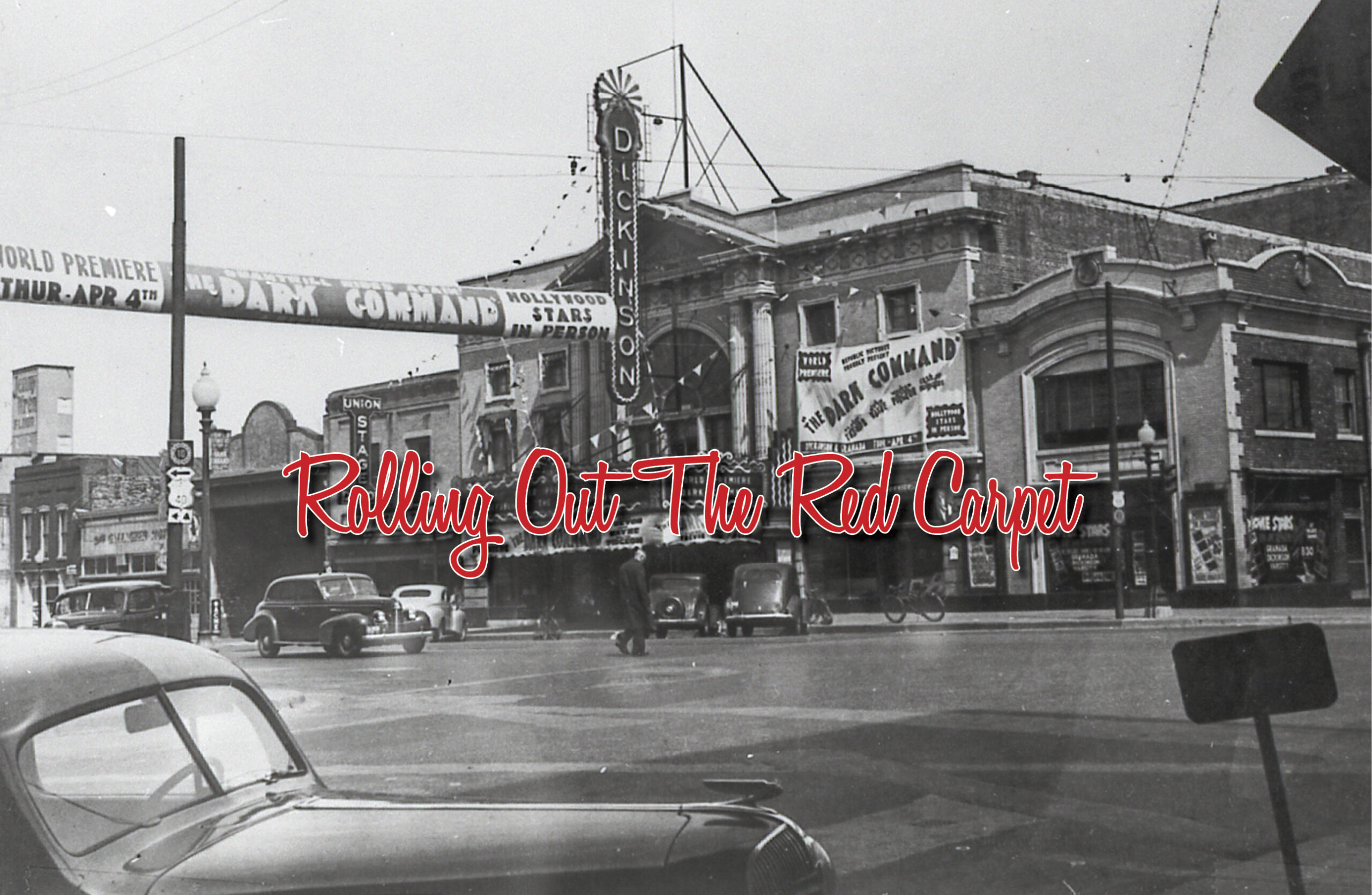
The Lawrence community in 1940 welcomed with open arms legends like John Wayne and Gene Autry at the world premiere of their movie based on Quantrill’s Raid.
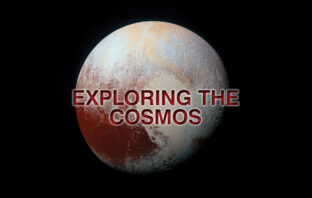
This self-taught Midwest boy discovered Pluto early in life and lived out his dreams of earning college degrees and contributing to the field of astronomy through his significant discoveries.

The North Lawrence Flood of 1951 wreaked havoc on not just Lawrence but communities all along the Kansas River. Residents and businesses were displaced, and cleanup and restoration took months.

The Public Land Survey System was the U.S.’s solution to surveying and distributing land to settlers despite it having already been claimed by indigenous people.
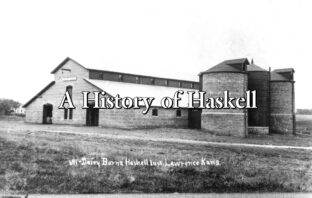
Although started as a school to assimilate American Indians into white culture, Haskell Indian Nations University transformed into an institution that celebrates indigenous cultures.

When settlers arrived to the Kansas Territory, they brought with them plants that soon began to populate the sparse area.
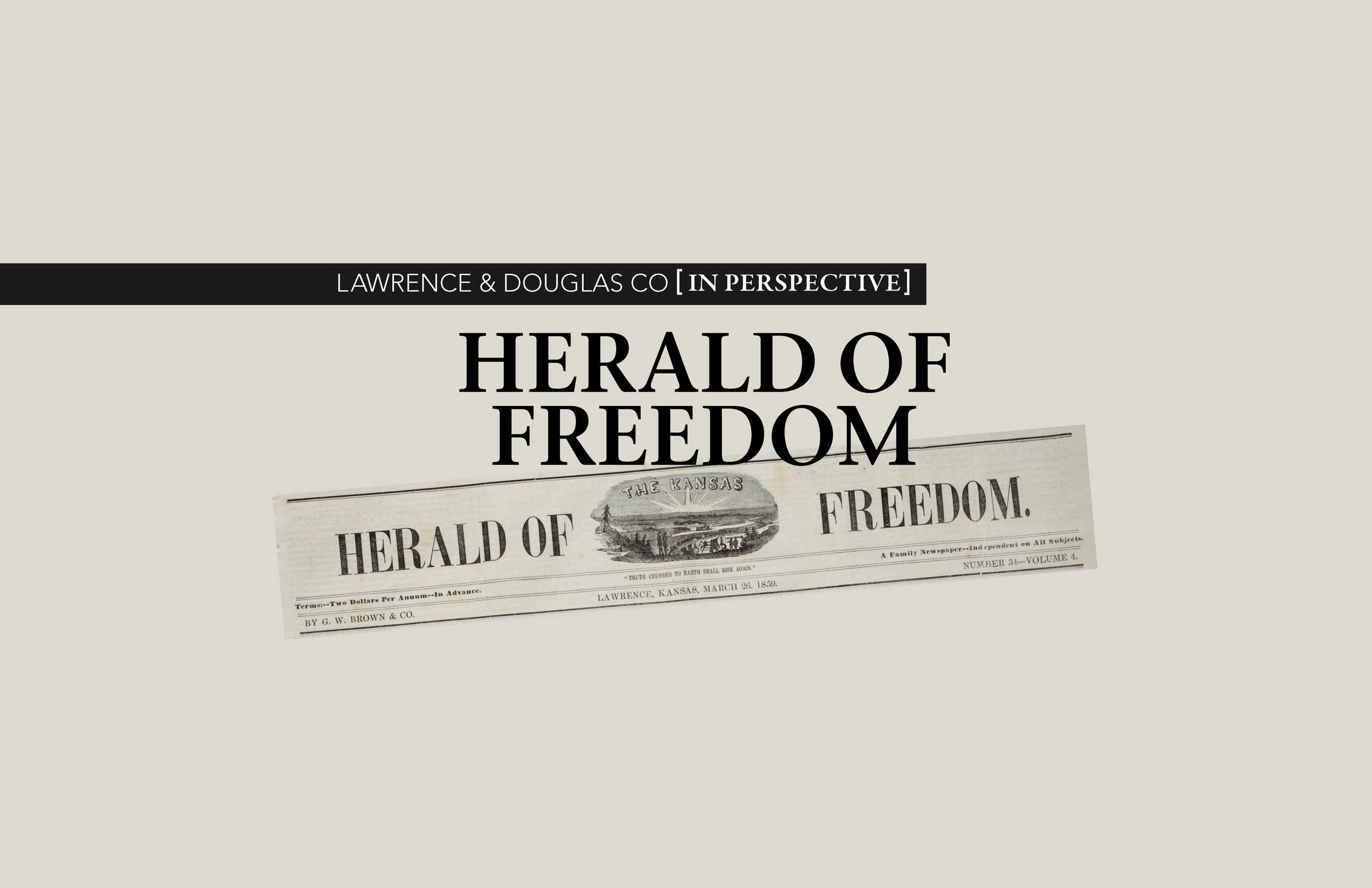
The first free state newspaper in the Kansas Territory promoted the free state cause to its readers, mostly in New England, to recruit them to the territory, ultimately increasing tension among free state and proslavery supporters before the Civil War.
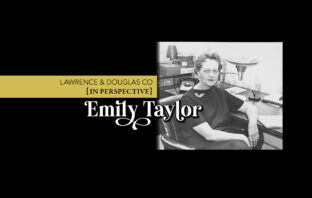
A woman ahead of her times, Emily Taylor gave the women of KU a sense of confidence and a drive to challenge stereotypes during a time when women were treated as inferior to men.
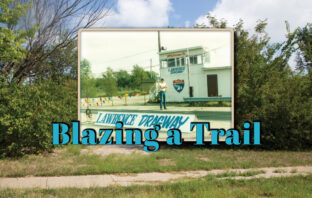
Drag Strip Road, now Wakarusa Drive, ran along a drag strip built in the late 1950s by a high school club hoping to use it as a training track.